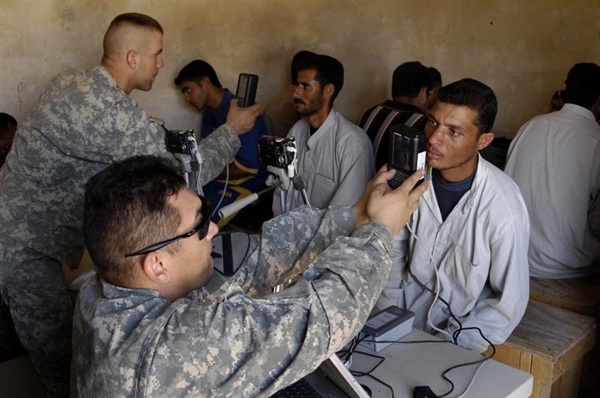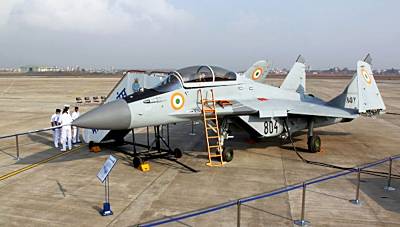WASHINGTON, July 25, 2011 — Guest blogger Stephanie Himel-Nelson is a social media consultant and the communications director for Blue Star Families .
By Stephanie Himel-Nelson
July 25, 2011
Explaining war to kids is always hard, but when you’re part of a military family, the task is even more difficult because it’s so personal. When my sons were little, their father was in the Navy Reserve as an intelligence officer with the Seabees, the Navy’s construction division. The boys understood what the military was in a very hazy “It must involve a ship, Daddy going away, and a large yellow bee” kind of way. But because their father wasn’t directly in harm’s way, I was able to gloss over hard questions about war and just concentrate on the fun parts of having a dad in the military from a toddler’s perspective — serving the country and wearing really cool hats.
When my brother, a soldier in the Ohio National Guard, went off to Kuwait three years ago, that explanation no longer seemed sufficient. While Uncle Bryan wasn’t hunting Taliban in Afghanistan, our family still worried about him and his safety. To keep the boys connected to their uncle, we checked his unit’s Web page with photos posted for family and friends, looking for that familiar face. On one night, my son asked to see a photo of an “Army truck” and I found him a few Humvee photos. On the back of each vehicle was a large placard with two stop signs and a message in Arabic and English. It read “DANGER STAY BACK.” My 3‑year-old wanted to know why they had signs on the trucks. I tried the standard, “Well, cars and people could get hurt by that big Army truck if they get too close.” He wasn’t buying it, pointing out that tractors are bigger. So I said, perhaps rashly, “Sometimes bad people try to get too close to the trucks and blow them up.”
I’ll never forget the look on his face. The idea that someone might want to hurt his uncle was incomprehensible to him. I believe it was the first moment he realized that bad things don’t just happen in nightmares. The moment was a first for me, too, as I realized that my military family would walk a fine line between explaining what Daddy and Uncle Bryan do and letting my children be children for as long as possible.
In our military community, my children and their classmates understand more than most kindergartners should about the mechanics of war. My sons, now 5 and 6 years old, can identify military aircraft flying overhead, they can tell you what an RPG or an IED is, and they know that Seals aren’t just found lying on the rocks in the sun. But war isn’t just a cool game for the playground; it’s horrible and dirty and fraught with shades of gray. That’s where it gets hard.
When my boys were 2 and 3, they didn’t ask a lot of follow-up questions about war, death and dying. I could distract them by reassuring them that everyone would be fine and safe. Distracting them was always an easy fallback: “Look, there’s a pretty butterfly!” But it keeps getting harder. My husband is retired now, but last year some good friends of my boys welcomed their dad home from a yearlong deployment to Iraq and the boys suddenly became aware of all of their schoolmates with parents in Iraq or Afghanistan. That’s when they started talking about the wars. The boys didn’t ask me direct questions, but I knew that I needed to answer them when they did.
My husband and I tried to shelter the boys from the events of Sept. 11, 2001, until pretty recently. I simply didn’t think that they could handle hearing about that sort of evil. I can’t even talk about 9/11 without crying, so how could I explain why we’re fighting a war in Afghanistan to my little guys? After all, a dislike of broccoli or that kid who spits his milk at lunch doesn’t exactly prepare a boy for concepts like jihad, does it? But last year, while we were watching a documentary about presidential photographers, those familiar scenes from the twin towers flashed onto the screen. My kids watched in horror and turned to me for an explanation. They didn’t ask questions, they just looked at me, expecting Mommy to have the answers. I stopped the video, and I tried to explain about Osama bin Laden and the men who flew planes into the towers on purpose. To hurt people. And how we went to war to make sure it didn’t happen again. I’m sure it didn’t help that I cried through my entire explanation, but the kids seemed to think the whole thing was a lot less complicated than I did. My youngest son, who was 4 at the time, was shaken, but I thought he summed it up well by calling the terrorists “bad people.”
It seems awfully simplistic to explain away two wars with “bad people,” but so far it’s worked for us. I don’t even know how to explain Iraq to my boys, so I’ve punted on that one so far. Still, I try not to dodge my kids’ direct questions. I know that simply changing the subject will leave a lot of unanswered questions in their minds. So when my youngest spent three straight weeks asking me if there were bad people in the United States, or in our town, or in his school, or in the grocery store, I kept patiently explaining that there are bad people everywhere but that most people are good. And, of course, that the “bad people” won’t hurt them. I know, however, that the boys still worry for their friends with deployed parents and they worry about their uncle.
You see, Uncle Bryan is going to Afghanistan soon, and the kids know that it will be dangerous. When I talked about it with my boys recently, my 5‑year-old asked, “Will Uncle Bryan die?” I said no, but I felt uncomfortable telling them that nothing bad would happen. I can’t make those guarantees. Instead, I explained that, yes, many service members have died in Afghanistan, but that Uncle Bryan is well trained and very careful, and that this isn’t his first deployment to a war zone. My youngest keeps asking questions about whether Uncle Bryan will be hurt or killed, but I know that he’s not really looking for answers; he just wants more reassurance from me that his uncle will be OK. I don’t let the boys see my fears.
I’m encouraging them to ask me, their dad and their uncle any questions they have. I’ve urged them to ask Uncle Bryan all about his job fixing tanks and other vehicles in the hope that the kids will focus more on my brother’s mission than on the danger. And we talk about how wonderful it is that so many Americans, including their Grandpa, Daddy and uncle, have volunteered to serve our country in the military. We talk about how sometimes it can be scary, but also how serving in our armed forces is something to be proud of.
Right now, war seems pretty black and white to my kids, but I know that it won’t last. It won’t be long before they ask questions about Iraq, or civilians who are hurt or killed, or the children in Iraq and Afghanistan. Right now, my 5‑year-old is convinced that “Uncle Bryan can dodge the bullets,” but I don’t know what I’ll say when he realizes that not everyone dodges every bullet and that sometimes people we love die. For now, I just hug my boys tightly and hope for wisdom and peace.
(Note: This blog originally appeared in the New York Times blog: “At War: Notes From the Front Lines.” Used by permission of the author.)
For more family-related posts, visit Family Matters bl og or check it out on Facebook and Twitter .
Source:
U.S. Department of Defense
Office of the Assistant Secretary of Defense (Public Affairs)

 von
von 
